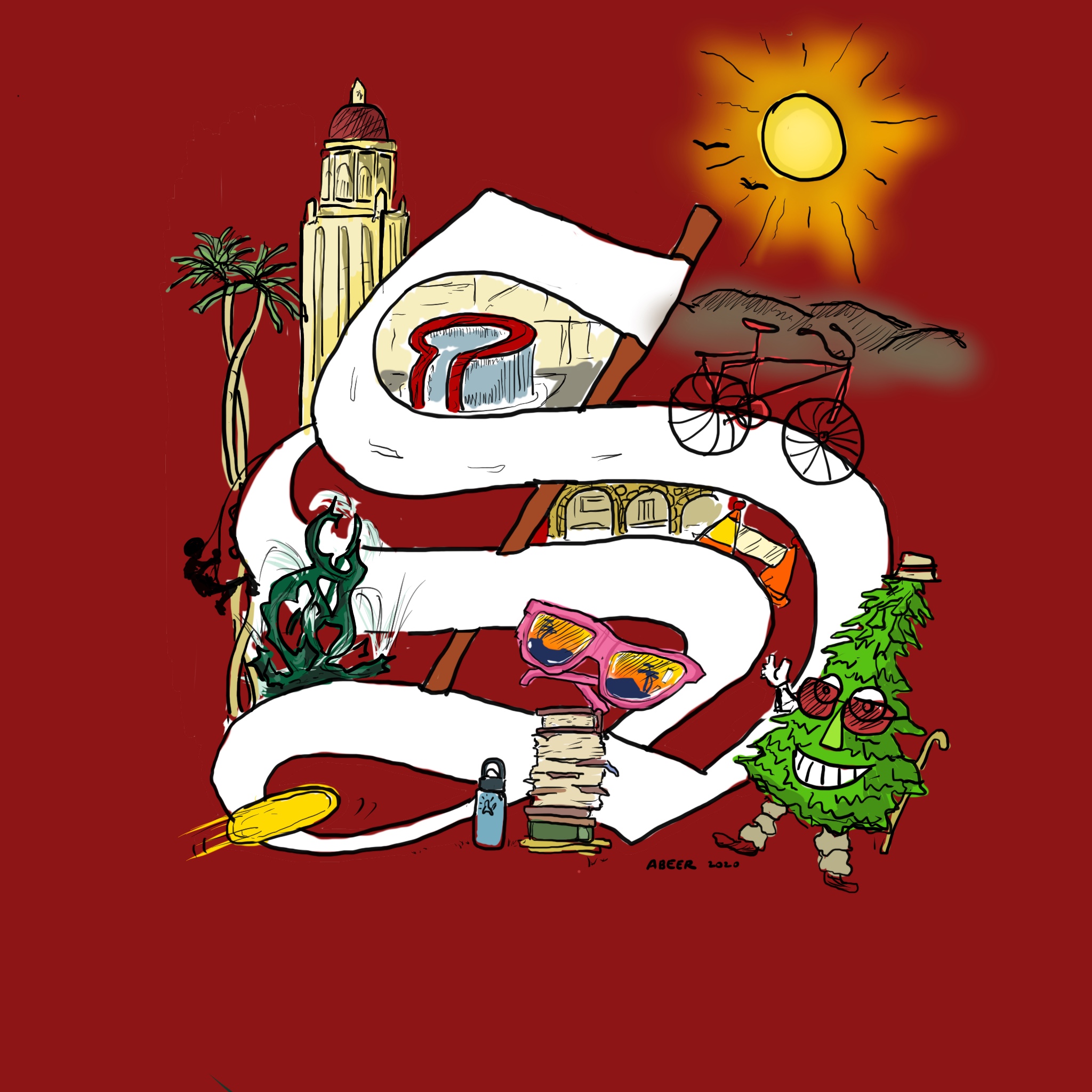
By Benjamin Zaidel and Marli Bosler
COVID-19 has forced students to adapt to virtual learning. Accordingly, as students joined class from their bedrooms instead of lecture halls, cheating rates rose at colleges and universities across the country.
Stanford has not been exempt: The past two academic years have been marked by a significant increase in Honor Code violations, according to data presented at a recent Faculty Senate meeting. Violations spiked from 138 in the 2018-19 academic year to 202 and 296 in the last two years of online learning.
For those curious as to how cheating has changed during the pandemic and what changes have been made to the system, we’re here to answer your questions, as well as provide insight on navigating and understanding Honor Code violations. Our answers are based on email responses from the Office of Community Standards (OCS) and the Office of Learning Technology & Spaces.
Here’s what you need to know:
Q: So what exactly is the Honor Code, and how does it work?
The Stanford Honor Code outlines the University’s policies on academic integrity, including the expectation that all coursework be completed without giving or receiving “unpermitted aid.” A first-time offense could result in a quarter-long suspension, community service and a failing course grade; for multiple violations, students may face a three-quarter suspension and more extensive community service.
Honor Code violations are reported to and investigated by a Judicial Officer and are then dismissed or referred to a Judicial Panel. The Panel’s findings are reviewed by the Dean of Student Life. Recommendations for expulsion, however, are all overseen by Provost Persis Drell. The process is codified in the Student Judicial Charter of 1997.
Q: Does the Honor Code still apply for distance learning?
Yes, but it has become increasingly difficult to enforce — largely due to the increased ubiquity of open-book exams. According to OCS, there are “no limitations on the materials or resources that a student may access,” yet certain resources, such as “translating services, tutoring services or question and answer sites” are prohibited.
Q: This seems ambiguous. How can I avoid violating the Honor Code while doing distance learning?
It’s best to check out the OCS website or talk to your professor if you have any questions. The Board on Judicial Affairs, a 15-person standing committee composed of Stanford faculty, staff and students that is charged with advising OCS on the adjudication process outlined in the Student Judicial Charter of 1997, has also developed guidance specific to the remote teaching and learning environment.
Q: I heard students at other colleges are running into cheating accusations through Canvas and online proctoring sites — is this happening here?
Dartmouth’s Geisel School of Medicine recently made headlines when one of their students was accused of cheating via Canvas, the same online platform that Stanford employs to track coursework and administer examinations. Out of 17 students that were accused of cheating, seven of them had their case dismissed.
According to the OCS and the Office of Learning Technology & Spaces, the University does not employ any of the anti-cheating systems that are built into Canvas, like proctored tests and lockdown browsers. The University also does not require students to download software such as Honorlock, ProctorU and Proctorio that can flag suspicious behavior or limit the sites students can visit during an exam.
Stanford does, however, have access to your submitted answers, along with the times when you’ve viewed, answered or flagged questions. The University also has access to the times and locations of pages and other materials students viewed within the Canvas system.
Q: What data can course administrators or IT access? Does Stanford store this data?
Stanford loosely defines when student data can be made available to instructors, stating that it can be shared for purposes “consistent with faculty and staff’s roles and responsibilities.” The University does not specify what types of student data they store, but says that some anonymized data may be shared with third-party companies like Google Analytics.

Q: What steps has the Office of Community Standards taken to make the rules and regulations of the Honor Code more transparent?
Since 2019, all incoming undergraduate students (frosh and transfer students) have been required to complete training on the Honor Code and Fundamental Standard. OCS also worked with the Bechtel International Center to develop a video to help international students understand the expectations of the Honor Code. At the start of school and throughout the academic year, OCS staff gave presentations to help students better understand the expectations of the Honor Code and the Fundamental Standard.
As Stanford transitioned to virtual programming, the OCS created a series of tips and recommendations for upholding the Honor Code in a virtual environment.
Q: What rights do I have if I am accused of an honor code violation?
As a responding student, you have the right to have your identity and the circumstances of your Honor Code allegations kept confidential, except in specific circumstances identified in the Bylaws. All parties, including panelists, are expected to respect the confidential nature of the OCS process.




